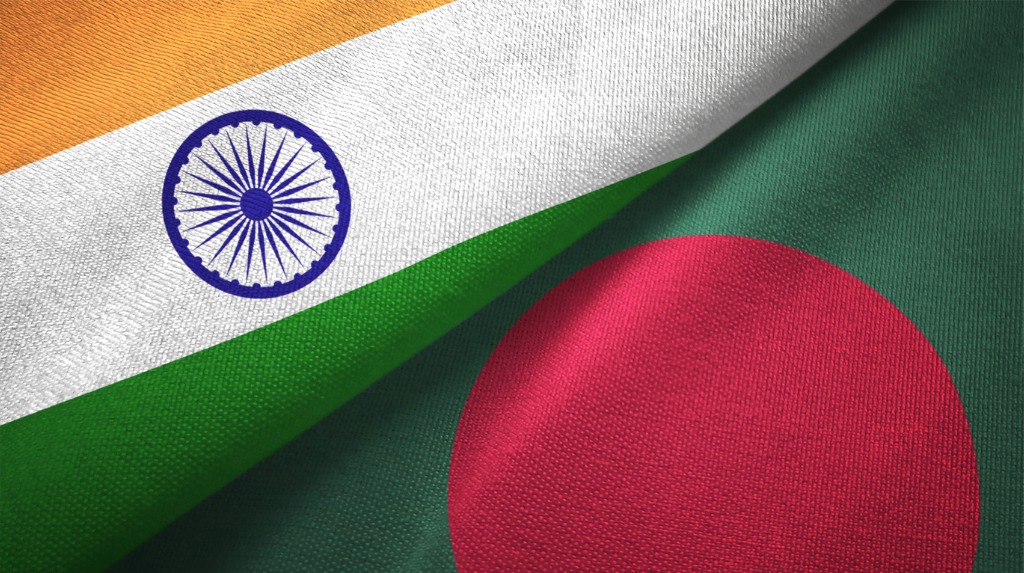India and Bangladesh share a unique relationship rooted in history and growing cooperation. Since Bangladesh’s liberation in 1971, ties have strengthened, especially under Sheikh Hasina’s leadership. This partnership has led to important agreements, including the Ganga water-sharing treaty. The relationship between Bangladesh and India serves as a model for regional cooperation in South Asia.
Economic Ties and Trade
Bangladesh stands as India’s top trade partner in South Asia, while India is Bangladesh’s second-largest Asian trade partner. Bilateral trade has surged, hitting $14 billion in 2023-24. Both countries are exploring a Comprehensive Economic Partnership Agreement (CEPA) to boost economic cooperation further. This agreement could significantly enhance trade relations between Bangladesh and India.
Bangladesh’s Strategic Importance for India
Bangladesh plays a crucial role in India’s regional strategy. The countries have resolved land and sea border disputes, marking significant diplomatic progress. New transport links, like the Akhaura-Agartala Rail connection, are enhancing connectivity. The development of Matarbari Port will link Dhaka with Northeast India, boosting regional trade and strengthening Bangladesh’s position as a key partner for India.
Energy Cooperation Between Bangladesh and India
Energy collaboration is a key aspect of India-Bangladesh relations. Bangladesh imports electricity from India, and both nations are working together on the Rooppur Nuclear Power Plant. The India-Bangladesh Friendship Pipeline will transport diesel from West Bengal to Bangladesh, strengthening energy security. This cooperation highlights the growing interdependence between Bangladesh and India in the energy sector.
Security and Defense Collaboration
With a shared border spanning over 4,000 km, security cooperation is vital for both Bangladesh and India. Joint military exercises like ‘Sampriti’ for the army and ‘Bongo Sagar’ for the navy enhance defense ties. Both countries actively participate in regional forums such as SAARC, BIMSTEC, and IORA, demonstrating their commitment to regional stability and cooperation.
Tourism and People-to-People Connections
Bangladesh is a major source of tourists for India, ranking second in 2021. This highlights the strong people-to-people links between the two nations. The cultural and historical ties between Bangladesh and India continue to foster mutual understanding and friendship.
Future Prospects for Bangladesh-India Partnership
The relationship focuses on shared goals of peace, prosperity, and development. Key areas of cooperation include:
1. Digital and green technologies
2. Trade and investment expansion
3. Power and energy collaboration
4. Regional and global partnerships
5. Simplified cross-border travel
6. Water resource management
7. Transport connectivity through the BBIN Motor Vehicle Agreement
8. Indo-Pacific cooperation
These areas of collaboration demonstrate the depth and breadth of the Bangladesh-India relationship, spanning economic, technological, and strategic domains.
Challenges in Bangladesh-India Relations
Despite strong ties, some issues require attention:
1. Illegal migration concerns: The influx of undocumented immigrants from Bangladesh to India remains a sensitive issue, impacting resources and security in border states.
2. Sharing of transboundary river waters: While the Ganga water-sharing treaty is in place, agreements on other major rivers like Teesta are yet to be finalized, affecting water management in both countries.
3. China’s growing influence in Bangladesh: Bangladesh’s participation in China’s Belt and Road Initiative (BRI) has raised concerns in India about potential shifts in regional dynamics.
4. Cross-border drug smuggling and human trafficking: These issues pose significant challenges to the security and stability of both nations.
The Role of Politics in Bangladesh-India Relations
The political landscape in both countries significantly influences bilateral relations. In Bangladesh, Prime Minister Sheikh Hasina’s government has maintained strong ties with India. On the Indian side, Prime Minister Narendra Modi and his BJP government have prioritized strengthening relations with Bangladesh as part of their “Neighborhood First” policy.
The Way Forward for Bangladesh and India
As Bangladesh and India continue to strengthen their partnership, addressing challenges will be crucial. Both nations, under the leadership of Sheikh Hasina and Narendra Modi, are working to resolve issues and deepen cooperation. The focus remains on leveraging their shared history and complementary strengths to foster regional stability and economic growth.
By maintaining open dialogue and prioritizing mutual interests, Bangladesh and India can overcome obstacles and build a stronger, more prosperous future for both nations. This relationship serves as a model for regional cooperation in South Asia and beyond.
The ongoing collaboration between Bangladesh and India in various sectors, from trade to security, demonstrates the potential for further growth in bilateral relations. As both countries navigate the complex dynamics of international relations in the 21st century, their partnership will likely play a crucial role in shaping the future of South Asia.
ALSO READ: How did the British army, using Indian soldiers, manage to defeat the larger Indian armies?
